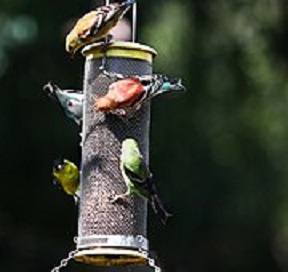
Courtesy of wikipedia.org
Senator John Fetterman (D) recently shared this observation with the public. You all should need to know that America is not sending their best and brightest to Washington, D. C. Congressional in-fighting, and scandals among the elected elite support the senator’s view.
Bureaucrats add to the confusion. As specialists in their fields, they can run circles around the people’s representatives. For example, while Congress squabbles about sending money to support Ukraine’s war, the Secretary of the Treasury, Janet Yellen, proposes that President Joe Biden bypass the government’s legislative branch and delegate Russia’s frozen assets to Volodymyr Zelenskyy.
Adding to the fog is technology, an industry politicians little know or understand. As a result, innovators in Silicon Valley have pursued Artificial Intelligence (AI) unfettered to a degree that it has become as great a danger to us as the atomic bomb.
In 2018, the Brookings Institute issued a report on the benefits and dangers of AI and provided recommendations to ensure the technology did no harm. It collected dust like most reports. But now, five years later, tech giants, have come running to Congress seeking regulations, fearing they have released an evil genie from its bottle and hoping to spread the blame.
While the tech world seeks legal protection from the potential damage their invention can do, the rest of us should consider what human traits these innovators have passed along to their powerful machines. Given our current capacity to blow up the planet’s resources, including polluting its air, what could go wrong?
The advent of AI will alter our lives, no doubt, but it won’t create a blank slate upon which to build our utopian dream. As historian Timothy Snyder warns, we can’t avoid dragging into our new world the debris of the past.
Economic inequality will be one such and should social mobility die, the scholar predicts democracy [will] give way to oligarchy, opening the door to tyranny. Donald Trump has given us a glimpse of that future, a society where citizens are encouraged to sleepwalk through their existence, obeying their leaders without question. What these sheep mustn’t see, says Snyder, is that most of those who held power in the past will continue to hold it in the future, making changes wrought by insurrections or revolutions largely an illusion.
True, the technological revolution has brought a world of information to our fingertips, but the price has been the loss of our privacy — data that the oligarchs of AI gather and sell for their immense profit. Elon Must is one of these. Having accumulated much of the world’s capital, he imagines he owns the rest of us and dares to wade into international politics, changing the course of our lives without the authority of a single vote cast at the ballot box.
Such hubris leaves us to ponder the legacy of these innovators. They have given us convenience and access to endless information, but they are the purveyors of disinformation and deep fakes too. By these means, society finds itself not merely divided but fractured, and to a degree that makes determining the public good seem impossible.
Will their invention, AI, come to sense the frailty of our species? As repositories of all that we know, will they see how we have dehumanized ourselves by our obsession with money, pleasure, and the pursuit of war? If so, will these lungless servants become our masters, caring nothing about us and our environment? I doubt they will miss the meadowlark ‘s song.
Forgive these dystopian questions, but it’s time to consider our status as naked apes. The universe takes little notice of us. And, Nature appears to be turning its back on our species. Or, perhaps, we were the first to turn away, preferring to focus on ourselves and the petty differences in our religions, the color of our skin, and our varying lifestyles.
When inconsequential variations like these become matters of life and death, are we worthy of respect even from our miraculous machines? More likely, they will judge us against other creatures on the planet and find we are not the best and brightest.
I must say that I have rarely seen a community come together in order to meet a common need in a manner as beautiful as that of a handful of birds at a feeder. Craig D. Lounsbrough
